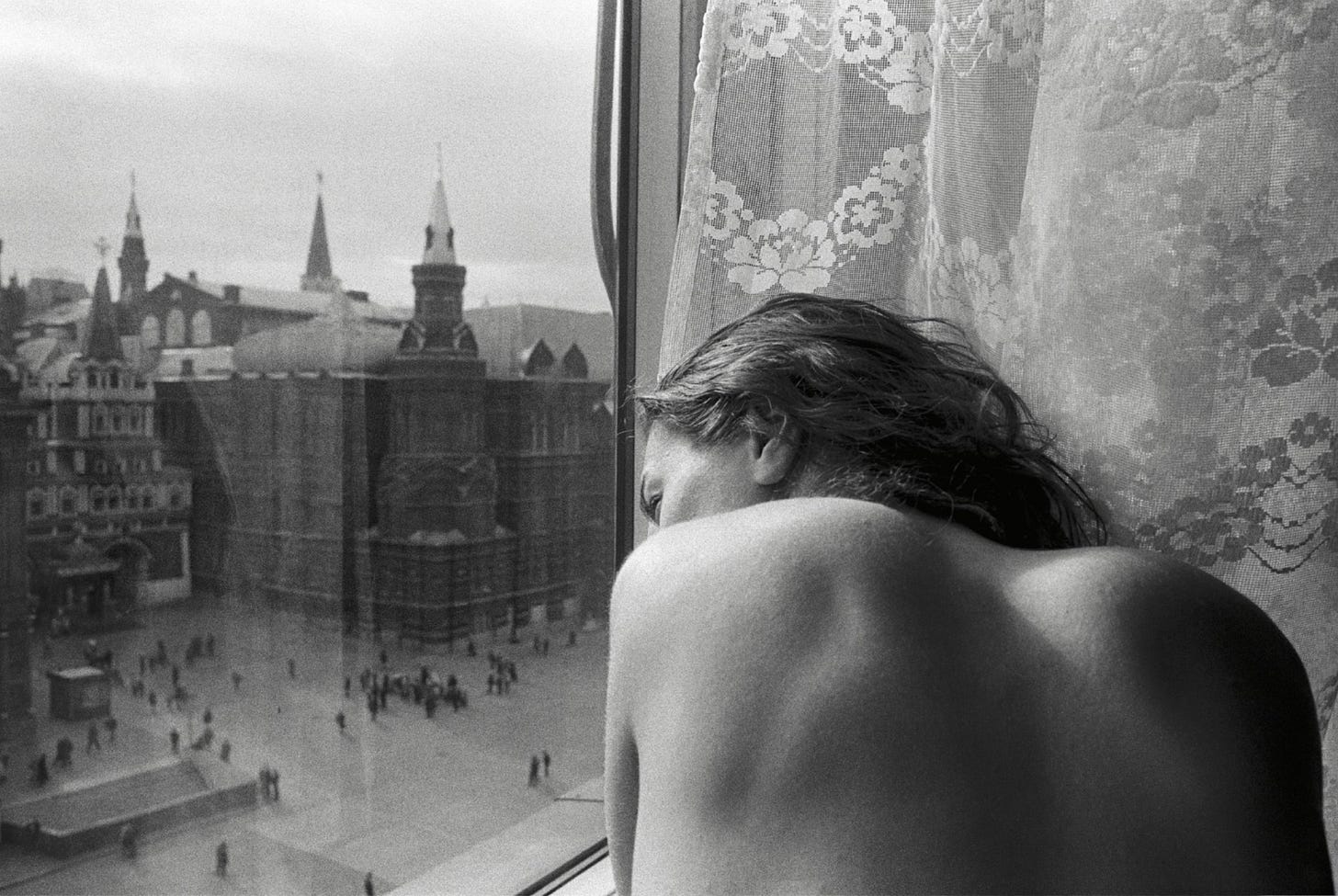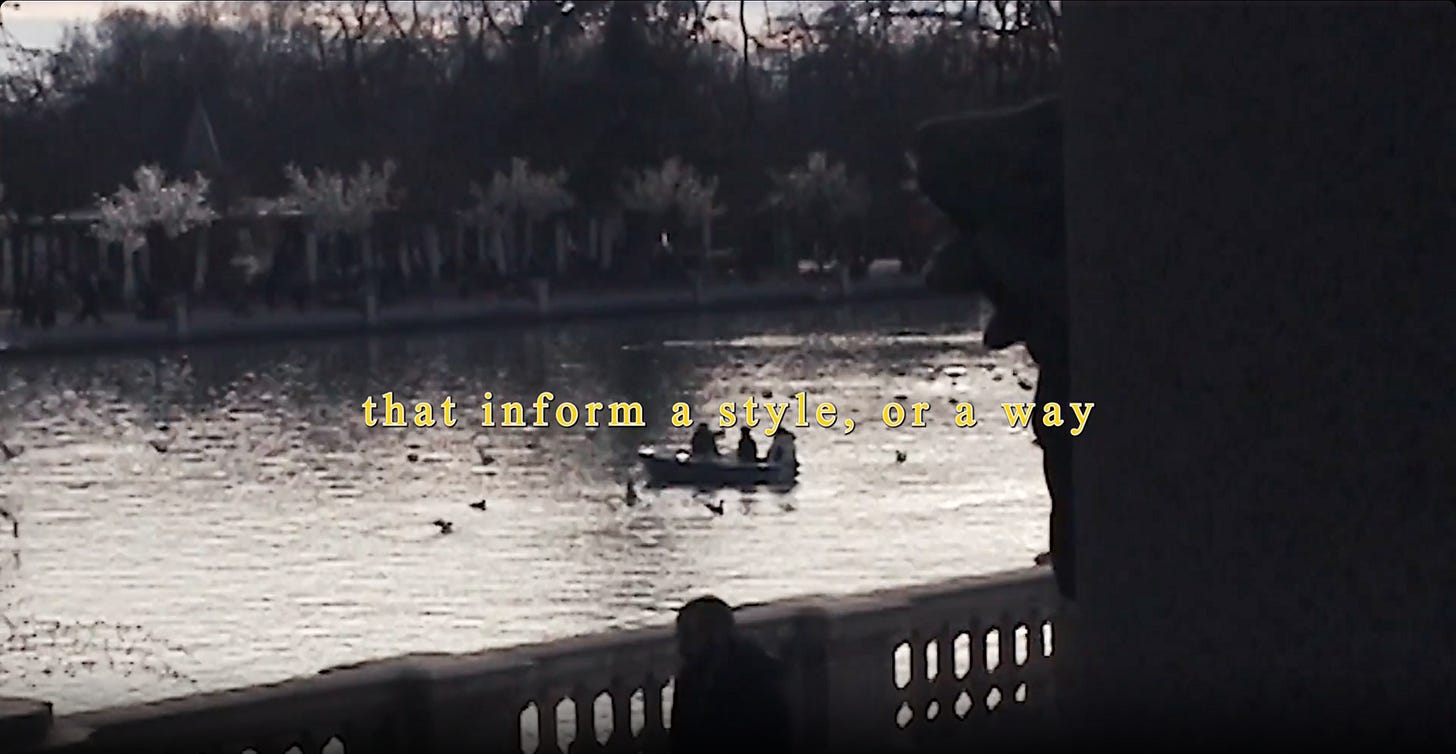Everywhere I go, the younger me follows. I hear his footsteps. Light and docile, meandering behind my own. My own steps like thumps on dusted earth, and his, like the kisses of feathers. I stop. He stops. But even my silence is louder. Harder. The way callouses grow over the softest soles. The softness remains, behind those walls, beneath that toughness, doughy.
I wake up with pillow creases on my skin. I know what binds the sculptor to his clay, the painter to his paints, the workman to his desk. I know the love that passes from fingers to the folds, the holes, the swellings. In my dreams, I lived the life of that boy, soft as feathers, and woke up formed in stalagmite. Rock. The bed sheets tight around my frame, softness adorned like youth wrapped in age.
Sometimes, the bearer of the soft steps behind my own feels like a muse. I aim to teach him things but come away humbled by what he taught me. He told me to study the life of strangers. To search for realness. This idea prodded at me with increasing lucidity, amidst work, amidst rest, amidst sleep. It told me to stop trying to create realness in my work. And to simply, capture it.
In a world where everyone seems to want to be influencers, ‘regular’ occupations become like bronze mementoes. Mechanics, bus drivers, nurses and waste collectors stand like islands in a tumultuous sea of digital possibility. In the ocean of the internet where what’s real and what isn’t blurs evermore, these jobs, these people, become like lighthouses anchored between rising tides.
My younger self, whispering in dreams, hands me a key: stop replicating—just listen.
Return to the first occupation that appeared magical to you, a bin-man. Truly. When I watched those men surf on the back of their trucks I saw heroes flying across paved streets. I saw beauty. Waste collectors became my muse. I wrote a script and I required an actor. Someone who could play themselves. I knew no one. I travelled down to my local depot and spoke to waste collectors before they started their shifts. I never mentioned that I was doing a film, I merely conversed with them. Beneath a sky devoid of sun, I saw solemnity in the eyes of those workers. Humility, in their respect for such work. Vitality, in their attitude for its blatant necessity.
Doing such gutter work, or for me, simply being around it, brought back memories of the freshness that had led me to be a filmmaker in the first place. Curiosity. A premonition that there was a key hidden in the soil of the world. That one of the great pleasures of being human lies in meeting yourself through the eyes of another. Endless, looping, circling; you.
In the search for my ‘actor’ I met the kind of eccentric characters you can’t help but glance at across the street. Forcing myself to go and talk to some of these misfits, one of one’s, civil guardians, turned the world into a playground. Every obscure character engaged with became a way to deepen my understanding. The streets themselves, with their layers of graffiti, dirt and shadows, became a guide to my aesthetic interests, to a world hidden in plain sight.
I felt as if I had discovered a cheat code. I wasn’t trying to make art to engage with the world. I was engaging with the world, first. Then, creating on top of that. This practice felt fresh to my usual domain, commercials and fashion. There, plans and strategies can overcomplicate the simplicity of creation. By planning too much, realness gets detached from immediacy.
I was overcome by deja vu, I had felt this before.
As a teen, I travelled from NYC's Port Authority to Pennsylvania by Greyhound bus. An older man, caked in reddish dust save for the grey stubble consuming his face, sat down beside me. Dirt sharpened his features. Sweat gave his skin an actor’s glow. He smelled of beer and had a voice like sandpaper. I listened. He told me he was a construction worker, dropping asphalt on highways and watching smoke settle. He looked up at the Twin Towers when the second plane hit, a witness to the city’s puncture.
‘Where are you going?’ I said, ‘home,’ he replied. Beside me was an aged man, but his stories let me see his younger self. I saw him standing on Broadway, his numb, cracked, sluggish hands wrapped around a shovel. Dark-suited Wall Street men looking right through him. Dimensions deepened. The city he created, he didn’t get to indulge in. The streets like trophies to his healed wounds, to his American dream.
Stories are everywhere. You don’t have to draw them from scratch. They’re in front of you, behind you, to the side and between the two. It lives in your connection with the world. Solace on the faces of strangers. Stories waiting to be cracked open. Between the hardness, between the flaws. To meet your muse, talk to strangers.
To all of you who have recently joined—welcome! I was blown away by the response to my recent post, conversation i never had. You can support Bluezone further by becoming a paid subscriber. Patrons get access to my entire library of work and support its continuation. Check out some frames from the previous Bluezone video, available to paid subscribers.
Main photo by Jason Eskenezi, 1991.










Fantastic. And also the idea of your inner-child, or your younger self, as a muse has revolutionary potential with how we relate to art, creativity and to other people as well.
So good